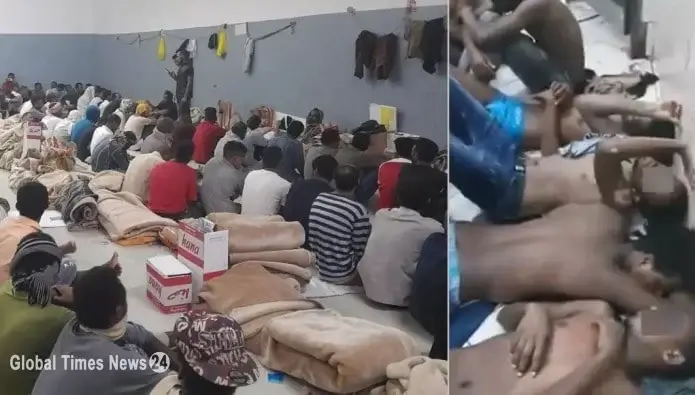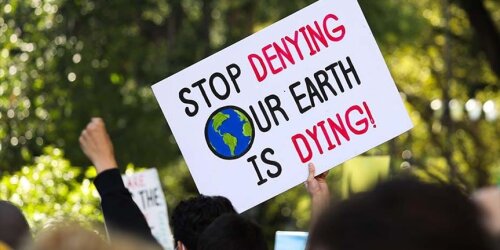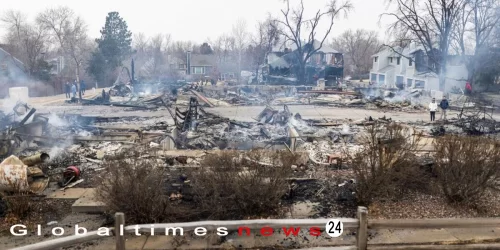German Foreign Minister Annalena Baerbock called Tuesday on Russia to return at the negotiation table with Ukraine.
Speaking at a news conference in Moscow following a meeting with head of the Russian diplomacy Sergey Lavrov, Baerbock said the de-escalation with Ukraine has been on the top of her agenda as a foreign minister in the last months.
"Yesterday I was in Kyiv, today in Moscow, and later today we will continue negotiations on how to return to the negotiating table in the Normandy format," the diplomat said.
Baerbock claimed that in recent weeks, more than 100,000 Russian servicemen and military equipment have been concentrated near the border of Ukraine "for no apparent reason" and that "it is difficult not to consider this as a threat."
She also said Germany is ready "to have a serious talk" about providing Russia with security guarantees and that the first steps in this direction were taken at meetings between Russia and NATO, and Russia and the Organization for Security and Cooperation in Europe.
"We are discussing a number of topics on which we have large, partly fundamental differences of opinion. ... But we also see the potential for increasing cooperation between Germany and Russia. We are extremely interested in stable relations with the Russian Federation," she said.
For his part, Lavrov said NATO demands from Russia to withdraw its troops although they are located on Russia's territory while never accepts the same demands regarding the movement of the alliance's troops on the territory of the member states, which he called "a double standard."
"We explained that we could not accept any demands regarding the actions of the armed forces on our own land," he said.
"We demand only one thing -- that what we agreed on to be carried out scrupulously. This also applies to the Minsk agreements, which, I repeat, are being sabotaged by the Kyiv regime, this also applies to the overall security architecture in Europe," he added.
The minister said he found an understanding with his German counterpart regarding the necessity of implementation of the Minsk Protocol and urged Berlin to push Kyiv to carry out the promises made during the 2019 Normandy Four summit in Paris.
Asked if the German government has a consolidated position on Nord Stream 2, Baerbock said the new government stressed in the coalition agreement that European energy legislation regulates -- both in the letter and in the spirit -- infrastructure projects and this applies to all energy infrastructure projects, including Nord Stream 2.
"The certification procedure for this project is currently underway, at the moment this procedure has been suspended. We have stressed again and again, at various levels, our government has stressed that if energy is used as a weapon, it will have relevant consequences, including in connection with this pipeline," Baerbock said.
The US administration has warned its European allies recently over Russia’s possible military attack, claiming that Moscow is planning to carry out a false-flag operation to justify an invasion of Ukraine.
Meanwhile, Russia points out that the Ukrainian military, backed by the NATO fleet in the Black Sea, conducts military operations close to its borders and uses weapons that can easily reach Russian territory.
Moscow also claims that the US private military companies are providing military assistance to the Ukrainian army, which, it says, is the reason for the country's "extreme concern."
News ID : 131
 Russian Missile Strikes in Ukraine's Kharkiv Result in at Least 17 Injuries
World / Breaking News
Russian Missile Strikes in Ukraine's Kharkiv Result in at Least 17 Injuries
World / Breaking News
 Antarctica or Sahara? Which one You Can Survive Easier for 1 Year?
World / Breaking News / Opinion
Antarctica or Sahara? Which one You Can Survive Easier for 1 Year?
World / Breaking News / Opinion
 US deploys eight MQ-9 Reaper drones to Greece
World / Breaking News
US deploys eight MQ-9 Reaper drones to Greece
World / Breaking News
 The plight of migrants workers in Saudi Arabia
Opinion / World
The plight of migrants workers in Saudi Arabia
Opinion / World
 Israeli Demonstrators Call for Gaza Hostages' Release and Early Elections
World / Breaking News
Israeli Demonstrators Call for Gaza Hostages' Release and Early Elections
World / Breaking News
 Global climate strikes, environmental protests in 2021
World
Global climate strikes, environmental protests in 2021
World
 In a historic launch, the Webb Telescope blasts off into space
Technology
In a historic launch, the Webb Telescope blasts off into space
Technology
 Nearly 1,000 homes destroyed in Colorado Wildfire
World
Nearly 1,000 homes destroyed in Colorado Wildfire
World
 11 strange things that washed ashore in 2021
Technology
11 strange things that washed ashore in 2021
Technology
 Capitol attack: Biden to blame Trump for carnage on anniversary
World
Capitol attack: Biden to blame Trump for carnage on anniversary
World